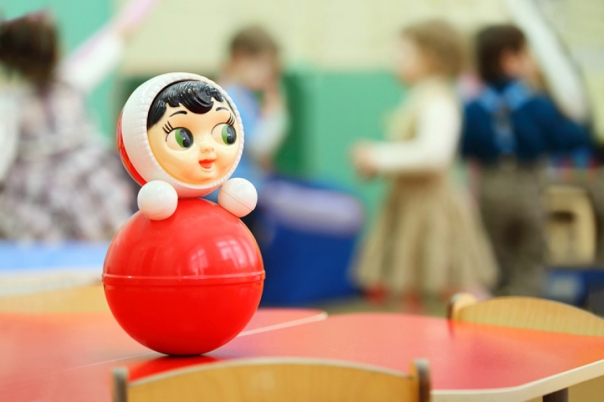
The preschool education is an initial and mandatory stage of education, which was recognized under the Law on Education in 1999 (Law on Education, 1999). However, Kazakhstani preschool education lacks superior services because of impediments it encounters as qualified preschool teachers and other.
Nowadays, approximately 9000 preschool organizations with 80900 teachers serve throughout the country (National Report, 2017). Although National Report on Education (2015) provided data about the growth of the number of teachers within kindergartens, the State Program “Balapan” 2011-2020 indicates teachers’ professional quality as low. The percentage of preschool teachers with “preschool education and care” major was 34,9%. Still poor, if compared with the whole number of preschool teachers. Considering the data, it is possible to say that, although the number of preschool teaching staff is not in its dead end, the number of teachers with preschool education major is inadequate. A question of quality raises here because who can guarantee the quality of the service with the shortage of appropriate staff.
Hereby, let me share a personal experience. Due to the lack of standard kindergartens, we had to attend mini centers with less qualified staff. My son’s preschool teacher had a background in sales, but she is a person who has taken some courses in childcare. Though, my son has been taught by someone who is a retailer. And I am not satisfied with this. Should it be an ordinary case in our country? Well, at that time I thought that we were a bit unfortunate in choosing a preschool organization.
But wait, look at the data. According to the State Program, more than 60% of preschool teachers have no qualification in preschool education, which makes me worry not only as a parent but as a concerned citizen as well. The scholars as Barnett and Riley-Ayers (2008) stated that teachers’ strong content knowledge about the children’s development and phycology is the key factor of success in preschool education. They need to take into account the style of teaching younger children, meet the needs of individuals and understand theoretical and practical pedagogy, as they interact with children. However, our Kazakhstani preschool education and teachers are missing the above-stated peculiarities. What consequences might a child face by being taught by someone who is not qualified at all? What about our society? How can it impact our society?
And What Can We Do with This?
References
Barnet, S. W., & Riley-Ayers, S. (2008). Public policy and workforce in early
childhood education. In L. J. Couse & S. L. Recchia (Eds.), Handbook of
early childhood teacher education (38-54). Location: New York.Routledge.
Irsaliev, S., Kultumanova, A., Tulekov, E., Buldybaev, T., Nurmuhametova, Zh.,
Kussidenova, G., Ismurzina, G. (2017). National report on the state and
development of educational system of the Republic of Kazakhstan. (for the years of Independence of Kazakhstan) Astana. JSC “IAC”.
Law on Education 7 June 1999, № 389-I. (1999). The Republic of Kazakhstan.
Retrieved from https://online.zakon.kz/Document/
MoES (Ministry of Education and Science of the Republic of Kazakhstan). (2010). The Program on Maintenance of Children with Preschool Education and Teaching “Balapan” 2011-2020. Astana. Ministry of Education and Science of the Republic of Kazakhstan.
National Review Report. (2015). UNESCO. Education for All. Kazakhstan. N 35 Country report. Mid-term assessment for achievement goals of Education for All. – Astana: NCEST, 2014- 98 Retrieved from http://unesdoc.unesco.org/images/0022/002297/229717E.pdf
Photo credit: http://24.kz/ru/news/social/item/188328-kak-otkryt-chastnyj-detskij-sad-v-astane
 language as an adult wishes they could have started doing it at his or her childhood. We assume childhood, early ages in particular, is the time when a new language learning goes faste and with less stress. “The earlier, the better” assumption inspires many educational policy makers, administrators, teachers, and parents around the world to initiate the early English learning and teaching in a preschool level. Kazakhstan is not an exception. According to
language as an adult wishes they could have started doing it at his or her childhood. We assume childhood, early ages in particular, is the time when a new language learning goes faste and with less stress. “The earlier, the better” assumption inspires many educational policy makers, administrators, teachers, and parents around the world to initiate the early English learning and teaching in a preschool level. Kazakhstan is not an exception. According to